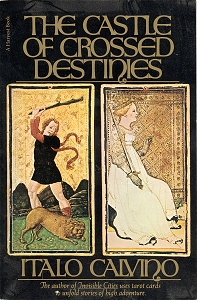
HARVILL SECKER announces winner of 2013
prize for young translators
Lucy Greaves, who holds an MA in Literary Translation from the University of East Anglia, is the winner of the 2013 Harvill Secker Young Translators’ Prize. Lucy attended the TimesCheltenham Literary Festival last night to accept the prize. Receiving her award from Harvill Secker editor Ellie Steel, following a special translation slam event in honour of the prize, Lucy said: ‘I’m shocked and delighted to have been awarded the Harvill Secker Young Translators’ Prize. This was my first ever piece of literary translation from Portuguese, and I never imagined I’d win! I feel very fortunate to have this incredible opportunity to develop as a translator and I’m really looking forward to working with Margaret Jull Costa on the BCLT mentorship scheme.’
As the winner of the prize, Lucy Greaves receives £1000 and a selection of Harvill Secker titles. She will also take part in a six-month mentorship scheme with translator and judge Margaret Jull Costa, in association with the British Centre for Literary Translation. In November she will travel to The Hague to participate in The Chronicles programme, which brings together young authors and young translators as part of the Crossing Border Festival.
The chosen language for the 2013 prize was Portuguese and entrants were asked to translate ‘O sucesso’, a short story by Brazilian author Adriana Lisboa. The prize was judged by authorNaomi Alderman, translator Margaret Jull Costa, literary journalist Ángel Gurría–Quintana and Harvill Secker editor Ellie Steel. This year’s runner-up is Annie McDermott.
The winning story is published online by Granta www.granta.com and will be available to read from Wednesday 9th October.
The judges commented: ‘The field was very strong, and we were impressed by the imagination applied by all our entrants, and the variety of interesting ways in which they dealt with the mood and humour of the piece. Adriana’s wonderful story appears simple, but it presents various challenges which must be handled deftly by a translator. We chose Lucy’s translation for its elegant sentences and her perceptive capturing of the story’s youthful energy and coming-of-age spirit.’
There were a total of 92 entries from 9 countries: Brazil, Bulgaria, Italy, the Netherlands, New Zealand, Portugal, Spain, UK and USA.
Lucy Greaves lived and worked in Colombia, Peru, Chile and Switzerland before going on to study an MA in Literary Translation at the University of East Anglia. She now works as a freelance translator from Spanish, Portuguese and French, and she is based in Bristol, UK. When not translating, she teaches skiing.
 Please visitwww.harvillseckeryoungtranslatorsprize.com for more information.
Please visitwww.harvillseckeryoungtranslatorsprize.com for more information.
THE AUTHOR
Adriana Lisboa
Adriana Lisboa was born in Rio de Janeiro. With degrees in Music and Literature, she is the author of ten widely translated fiction titles, including five novels, a collection of flash fiction, and books for children. She was hailed as a new star of Brazilian literature after the publication of her 2001 novel Sinfonia em Branco (‘Symphony in White’), which received the prestigious José Saramago Prize. In 2007, she was selected by the Hay Festival/Bogota World Book Capital as one of the 39 highest profile Latin American writers under the age of 39. Her latest novel, Crow Blue, will be published in the UK by Bloomsbury in October 2013, translated by Alison Entrekin.
THE JUDGES
Margaret Jull Costa (translator)
Margaret Jull Costa has been a literary translator for nearly twenty-five years and has translated many novels and short stories by Portuguese, Spanish and Latin American writers, including Eça de Queiroz, Fernando Pessoa, José Saramago, Javier Marías, Bernardo Atxaga, Alberto Barrera Tyszka and Luis Fernando Verissimo. She has won various prizes for her work, most recently, the 2012 Calouste Gulbenkian Prize with Teolinda Gersão’s The Word Tree, for which she was also runner-up with António Lobo Antunes’s The Land at the End of the World.
Naomi Alderman (author)
Naomi Alderman grew up in London and attended Oxford University and UEA. In 2006 she won the Orange Award for New Writers, and in 2007 she was named Sunday Times Young Writer of the Year and one of Waterstones’ 25 Writers for the Future. She is the author of four novels: Disobedience, The Lessons, The Liars’ Gospel and the Doctor Who tie-in novelBorrowed Time. Naomi broadcasts regularly, has guest-presented Front Row on BBC Radio 4 and writes regularly for Prospect and the Guardian. From 2004 to 2007 Naomi was lead writer on the BAFTA-shortlisted alternate reality game Perplex City. She’s written online games for Penguin, the BBC, and other clients. In 2012, she co-created the top-selling fitness game and audio adventure Zombies, Run!. This year, she has been named among the twenty most promising young British writers by Granta on its prestigious once-a-decade list.
Ángel Gurría-Quintana (journalist)
Ángel Gurría-Quintana is a historian, journalist and translator of Spanish and Portuguese. He has written for the Financial Times since 2003, specialising in literature in translation. His work has also appeared in the Observer, the Guardian, The Paris Review, Brick, granta.comand the translation blog Three Percent. A regular presence at the Festa Literária Internacional de Paraty, his translations from Portuguese include the stories by Beatriz Bracher, Bernardo Carvalho, Milton Hatoum, Reinaldo Moraes and Cristovão Tezza in the compilation Dez/Ten (2012). More recently he co-edited and translated the forthcoming anthology, Other Carnivals: New Writing from Brazil (Full Circle Editions). He works at the University of Cambridge.
Ellie Steel (editor)
Ellie Steel is an editor at Harvill Secker, where she publishes authors Manuel Rivas, Karin Fossum and Andrey Kurkov, among others. She is the coordinator of the Harvill Secker Young Translators’ Prize and editor of the ‘A View from This Bridge’ blog atwww.internionalwriting.co.uk
I will be reviewing the New Novel in English By Adriana Lisboa tomorrow on the Blog





 Please visit
Please visit









